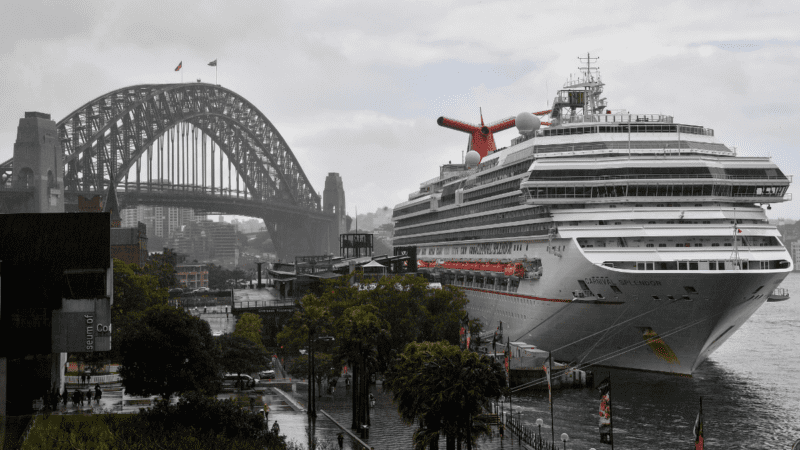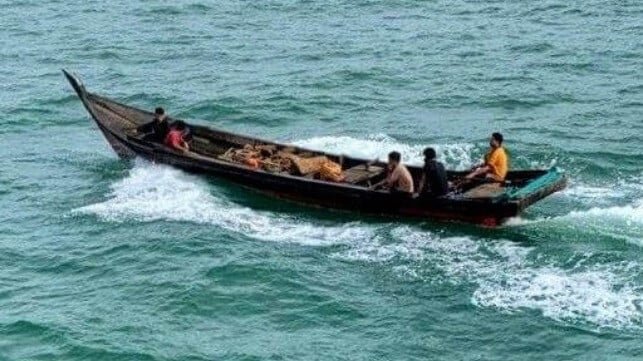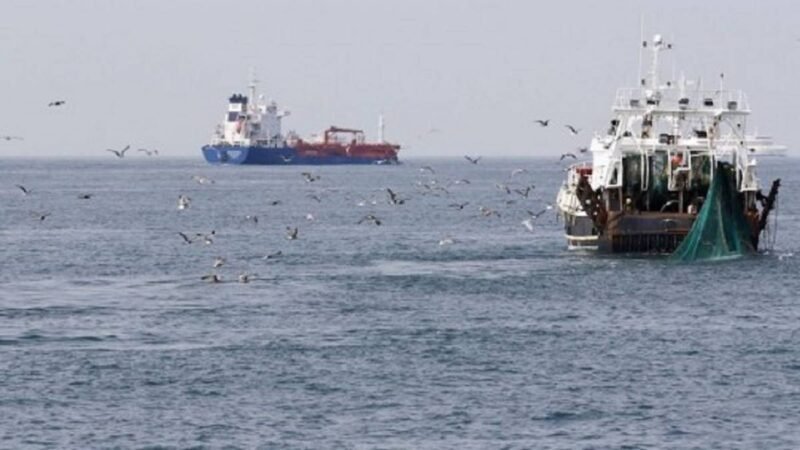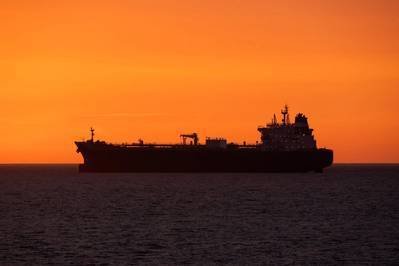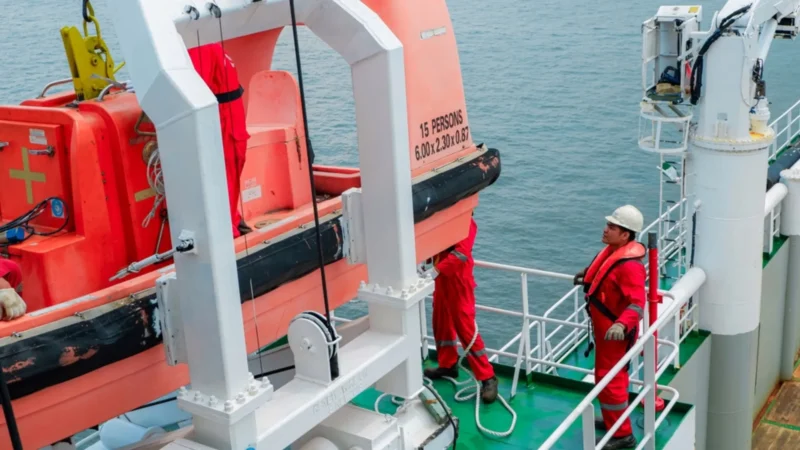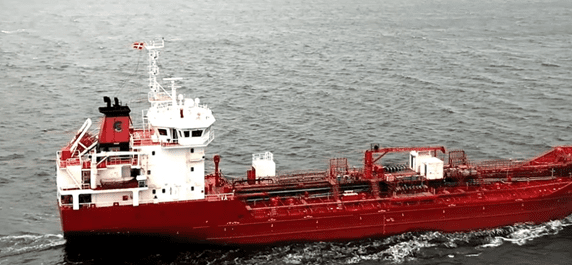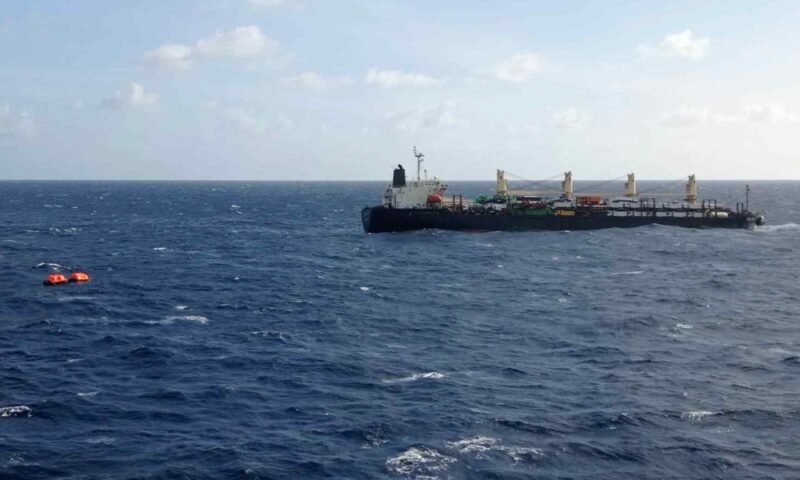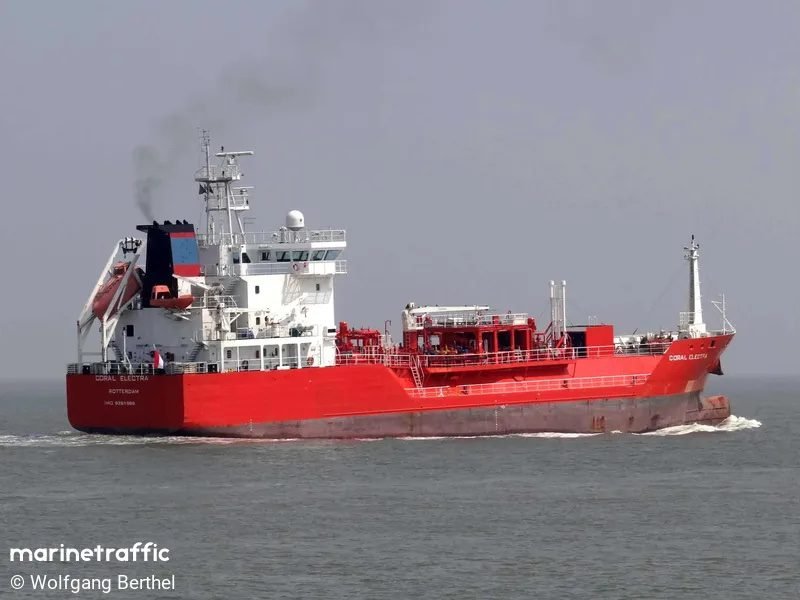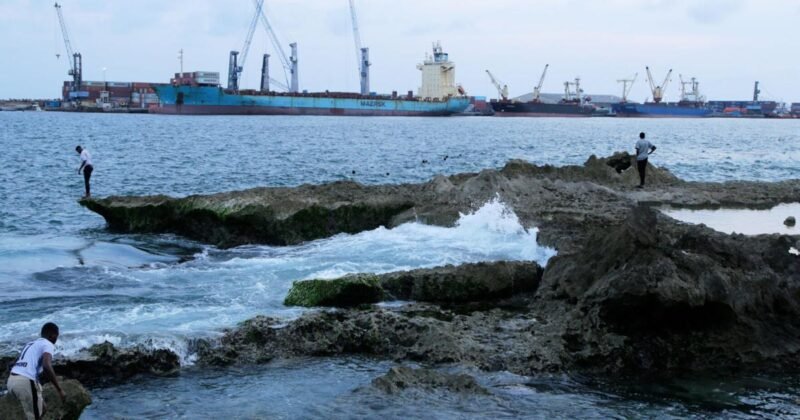Following Stories compiled in this News Digest for the week from 11 Oct 2021 to 17 Oct 2021 in descending order:
- Global piracy has hit a 27-year low: Maritime Authority
- Congestion Hits Throughput at Port of Long Beach in September
- Gati Shakti programme will bring in better coordination: Chennai Port Trust
- Carnival is Named as One of World’s Best Employers
- Significant acceleration in digitalisation of maritime industry highlighted in Inmarsat report
- Green hydrogen fuels to decarbonise 80% of global shipping
- IMO resolution to designate seafarers as key workers
- Indian seafarers: The Future and Road Ahead
- Code of Conduct Developed to Increase Focus on Crew Welfare Issues
- Are We Preparing Our Seafarers for Technological Change?
- Sailors in Columbus’ hometown knew of America 150 years before he did, study says
- Clogged shipping ports threaten holiday sales
Global piracy has hit a 27-year low: Maritime Authority
16 Oct 2021
A total of 97 incidents of maritime piracy and armed robbery were reported globally for the first nine months of 2021, the lowest level of reported incidents since 1994, a global maritime body has said.

A new report from the International Chamber of Commerce’s International Maritime Bureau (IMB) reveals that pirates boarded 85 vessels so far this year, while there were nine attempted attacks, two vessels fired upon and one vessel hijacked.
Reported incidents are down to their lowest level in decades, but violence against seafarers has continued with 51 crew kidnapped, eight taken hostages, five threatened, three injured, two assaulted and one killed, according to the latest IMB statistics.
Despite the fall, the global maritime body warns that seafarers must remain vigilant as violence against crew remains high in many areas of the world. Reference
Congestion Hits Throughput at Port of Long Beach in September
16 Oct 2021
Congestion at the Port of Long Beach hit throughput in September with volumes falling nearly 6% compared to the same month last year.
Long Beach, the nation’s second busiest port for containerized imports, still had its second busiest September on record as dockworkers and terminal operators moved 748,472 TEUs, a dip from the strongest September on record in 2020.

It’s not for lack of ships and cargo, however. The port said the results demonstrate the need for extended work hours within the supply chain as an unprecedented numbers of vessels continue to wait off the coast to unload cargo.
“We are having capacity issues due to the unprecedented number of containers waiting to move off the terminals, while warehouses have little to no room to accommodate this ongoing spike in cargo moving through our port,” said Mario Cordero, Executive Director of the Port of Long Beach. “This is not just about a record number of ships waiting off the coast. We are working with state, federal, local and industry partners to address issues with the entire supply chain that have finally caught up with us.”
It’s now no secret that the pandemic-fueled cargo surge will continue into next year. Issues within the supply chain have slowed the country’s economic momentum, but have not reversed it, as strong consumer spending supported by rising employment and wage growth will continue to drive economic expansion, the port said. Reference
Gati Shakti programme will bring in better coordination: Chennai Port Trust
15 Oct 2021
The Centre’s Gati Shakti National Master Plan for infrastructure, unveiled by Prime Minister Narendra Modi, would bring in better coordination among 16 ministries under one portal, Chennai Port Trust Chairman Sunil Kumar Paliwal said here on Wednesday.
Modi earlier in the day launched a Rs 100 lakh crore national master plan for multi-modal connectivity that aims to develop infrastructure to reduce logistics costs and boost the economy.

The PM Gati Shakti targets to cut logistics costs, increase cargo handling capacity and reduce the turn-around time, Modi had said at a function to launch the plan.
Briefing reporters here, Paliwal said what is being envisaged through the programme is coordination of 16 ministries like civil aviation, ports, highways and shipping, railways.
Paliwal who is the Chairman and Managing Director of Kamarajar Port Ltd, assumed additional charge as Chairman of Chennai Port Trust on October 1, according to CPT.
“All these Ministries are undertaking various projects and details of the projects will be put on this portal. Today, I do not know what projects the Railways are doing and they do not know which port is doing a project”, he said.
Elaborating, he said one cannot put a new port in isolation and the new Port should have proper road connectivity, rail connectivity, telecom infrastructure and an airport nearby. Reference
Carnival is Named as One of World’s Best Employers
Forbe’s fifth annual survey has listed Carnival Corporation as one of the World’s Best Employers for 2021. The largest cruise company in the world includes the nine cruise brands of Carnival Cruise Line, Costa Cruises, Princess Cruises, Holland America Line, Sebourn, P&O Cruises, P&O Australia, AIDA Cruises, and Cunard Line.

“We are honored to be recognized by Forbes as one of the top employers in the world, and we are extremely proud of our talented and passionate team members whose dedication and commitment is the foundation of our success,” said Roger Frizzell, chief communications officer for Carnival Corporation.
To come up with the list of the best employers in the world, a globally administered independent survey was conducted of more than 150,000 employees in 58 countries covering part-time or full-time workers. Reference
Significant acceleration in digitalisation of maritime industry highlighted in Inmarsat report
14 Oct 2021
Inmarsat, the world leader in global, mobile satellite communications, has published a new report pinpointing the impact of COVID-19 in accelerating global shipping’s digital journey.
Written by maritime innovation consultancy Thetius and sponsored by the Inmarsat Research Programme, ‘A Changed World: The state of digital transformation in a post-COVID-19 maritime industry’ captures a sector fast-tracking IoT-based solutions from November 2019*. It characterises COVID-19 as a “universal disruptor and catalyst for digital transformation”.

The report finds that, as COVID-19 emerged and global travel restrictions took hold, surging demand for crew connectivity was echoed in uptake for other digital services needed to keep ships running.
“The impact of COVID-19 on ship operations is evidenced by a massive increase in the use of remote services such as pilotage and surveying,” the report says. “Similarly, crew training and officer examinations went fully online for the first time ever in some jurisdictions. More broadly, global trade facilitation saw an explosion in the use of digital tools, including massive growth in consumer demand for e-commerce and the use of online booking platforms for shipping freight.”
“Digital solutions are now pervasive in maritime, and one consequence of COVID-19 has been that our customers – and their customers – increasingly think digital first,” commented Stefano Poli, VP Business Development, Inmarsat Maritime. “The last 18 months have been challenging, but they have also brought a seismic shift in attitudes in favour of IoT-based solutions for crew connectivity, safety, sustainability and ship efficiency. Reference
Green hydrogen fuels to decarbonise 80% of global shipping
14 Oct 2021
A rapid replacement of fossil fuels with renewable fuels based on green hydrogen and advanced biofuels could enable to cut up to 80% of CO2 emissions attributed to international maritime shipping by mid-century, a new report by the International Renewable Energy Agency (IRENA) finds.
Renewable fuels should contribute at least 70% of the sector’s energy mix in 2050, IRENA’s “A pathway to decarbonise the shipping sector by 2050“ shows, outlining a roadmap for the global shipping sector in line with the global 1.5°C climate goal.

“Between 80% and 90% of international trade is enabled through maritime means. Decarbonising global shipping is one of the most challenging sectors to address – and despite raised ambitions – current plans fall short of what is needed,” Francesco La Camera, IRENA’s Director-General, said.
If the international shipping sector were a country, it would be the sixth- or seventh-largest CO2 emitter. IRENA’s decarbonisation 1.5°C pathway is based on four key measures such indirect electrification by employing green hydrogen-based fuels, the inclusion of advanced biofuels, the improvement of vessels’ energy efficiency and the reduction of sectoral activity due systemic changes in global trade dynamics. Reference
IMO resolution to designate seafarers as key workers
13 Oct 2021
Almost two years after the COVID-19 pandemic started, the International Maritime Maritime (IMO) Maritime Safety Committee (MSC) has approved a draft IMO Assembly resolution consolidating issues related to crew change, access to medical care, ʺkey workerʺ designation and seafarers’ prioritization for COVID-19 vaccination.

The draft resolution was approved during the 104th MSC session, held between 4 and 8 October 2021.
It is expected to be adopted at the 32nd session of the IMO Assembly, to be held between 6 and 15 December 2021.
Specifically, the draft Assembly resolution on comprehensive action to address seafarers’ challenges during the COVID-19 pandemic urges Member States to:
- designate seafarers as ʺkey workersʺ in order to facilitate shore leave and safe and unhindered movement across borders, and recognize their relevant documentation for this purpose;
- consider the implementation of the industry recommended framework of protocols for ensuring safe ship crew changes and travel during the Coronavirus (COVID-19) pandemic;
- prioritize vaccination of seafarers, as far as practicable, in their national COVID-19 vaccination programmes;
- consider exempting seafarers from any national policy requiring proof of COVID-19 vaccination as a condition for entry, taking into account that seafarers should be designated as ʺkey workersʺ and that they travel across borders frequently;
- provide seafarers with immediate access to medical care and facilitate medical evacuation of seafarers in need of urgent medical attention when the required medical care cannot be provided either on board or in the port of call.
What is more, the MSC approved Guidance on seafarers’ training and certification for issuing administrations, flag states and port states during the COVID-19 pandemic. Reference
Indian seafarers: The Future and Road Ahead
13 Oct 2021
Indian Seafarers have acquired a prestigious position as a major workforce over many decades with both Officers and Ratings being part of it.
Ship Owners and Crew Managers have looked forward to recruiting them with confidence to man their ships.

Maritime Training Institutes need to reorient their syllabus to keep up with the latest developments worldwide and impart training accordingly.
Indian Seafarers need to appreciate that India has acquired a significant lead in the world workforce. However, it is time we do not take this privileged status for granted and make determined efforts to enhance our professionalism. The ongoing pandemic has already hit the entire world. Commerce has taken a severe beating and even though merchant shipping continues to function as a global supplier of goods, crew changes have been severely impacted. If we are to retain our position as a major workforce supplier, Seafarers too need to understand the severe handicaps faced by owners and managers. It is natural for Seafarers on extended contracts to encounter physical and mental challenges, away from their families. However, a little more understanding would go a long way to ensure that our work slots are not taken away by other nationalities.
Let us all hope for a swift end to this pandemic and get back on track and improve our status in the world Merchant Shipping market. Reference
Code of Conduct Developed to Increase Focus on Crew Welfare Issues
13 Oct 2021
With the increasing focus on the welfare and mental health issuers for the world’s two million seafarers along with the increasingly difficult work environments, a new initiative is launching to provide a uniform code of conduct and assessment tool for ship owners, operators, and charters. Design as a tool for the industry to demonstrate its commitment to seafarers’ welfare and provide transparency, the Code of Conduct builds on the ILO Maritime Labor Convention (MLC) to provide a more comprehensive standard for the industry and its employees.

“A sustainable shipping industry needs to ensure the protection of its workforce. This presents a unique opportunity for the industry to work together and take concrete action for the rights of nearly 2 million seafarers worldwide, now and in the future,” said Kristina Kunigenas, Human Rights Lead at the Sustainable Shipping Initiative.
The project has been led by the Sustainable Shipping Initiative (SSI) and the Institute for Human Rights and Business (IHRB), in collaboration with the Rafto Foundation for Human Rights and RightShip. Key SSI members played an active role in its development, with expert input from Forum for the Future, Louis Dreyfus Company, Oldendorff Carriers, South32, Standard Chartered Bank, Swire Shipping, and Wilhelmsen Ship Management.
To enable immediate action across the industry, RightShip has launched an online self-assessment tool developed in collaboration with SSI and IHRB. This freely available questionnaire provides practical guidance on utilizing the Code of Conduct, helping shipowners and operators understand their responsibilities while assessing current operations and ways of working, and consequently showing areas for improvement. Reference
Are We Preparing Our Seafarers for Technological Change?
13 Oct 2021
As the recently published study by the Danish Maritime Accident Investigation Board (DMAIB) and UK Marine Accident Investigation Branch (MAIB) into ECDIS usage has highlighted, the boundaries between humans and machines are changing and responsibilities are becoming blurred. Only a couple of decades ago, most activities onboard were completely human centered. Bridge watchkeepers took position lines and plotted them on charts to create ‘fixes’ from which future movements were extrapolated; chief officers carried out complex loading calculations; and, in the engine room, gauges were read in order to monitor system performance.

Most of these tasks are now automated, with the human in the system reduced to the role of monitor. The seafarer still carries the responsibility for stepping in – in adequate time – to make safety-critical decisions. Spare a thought for the chief officer on a 22,000 TEU container ship who is responsible for checking the stow plan provided to him by a shore-side loading computer, when the algorithms it used do not match the metrics in the ship’s Cargo Securing Manual.
There is a seductive side to technology. The more often it is right (or appears to be), the more we come to rely on it. “Why check? The machine is always right,” and human skills begin to fade from lack of use. Much of the maritime industry is compliance-based: implement the standards and all will be OK. This approach neglects the fact that the pace of technological change can leave standards struggling to keep up, and “compliance” alone does not provide the “assurance” we expect. We should take time to focus on what we are requiring seafarers to do, and ask ourselves whether they have actually been trained to use the tools they need to do their jobs. Can they really discharge the responsibilities they have been given effectively? Reference
Sailors in Columbus’ hometown knew of America 150 years before he did, study says
12 Oct 2021
Long before Italian explorer Christopher Columbus discovered America, sailors from his hometown may have already been aware of its existence, new analysis of 14th-century documents reveal.
Medieval Latin literature experts from the University of Milan, while transcribing a document dated 1345 and written by Galvaneus Flamma, a friar from Milan, realised that a passage in this ancient essay refers to an area we know today as North America.

The essay, first discovered in 2013, suggests that sailors from Genoa, Columbus’ hometown, were already aware of this land called Marckalada — as America first finds mention in the Mediterranean region.
According to Paolo Chiesa, one of the authors of the study, this is the “first known reference” to the continent in the Mediterranean area.
The findings were published in the journal Terrae Incognitae ahead of Columbus Day 2021 (11 October), which marks the anniversary of Columbus’s arrival in the Americas in 1492.
According to Chiesa, Genoa would have been a “gateway” for news about new worlds. Galvaneus appears to have heard of seafarers’ rumours about lands to the extreme north-west, as well as information about Greenland, which he details accurately.
“What makes the passage (about Marckalada) exceptional is its geographical provenance: not the Nordic area, as in the case of the other mentions, but northern Italy,” Chiesa said in a statement.
Although there is no evidence that Italian or Catalan seafarers ever reached Iceland or Greenland at that time, the Genoese might have brought back to their city scattered news about new lands that they heard in the northern harbors from Scottish, British, Danish, Norwegian sailors with whom they were trading. Reference
Clogged shipping ports threaten holiday sales
12 Oct 2021
The traffic in Los Angeles these days is not just on the roads, it’s in the water.
Cargo ship after cargo ship wait to come to port as supply chain snags due to the health crisis have upended the ocean shipping industry… which moves roughly 90% of the world’s goods.
Gene Seroka is Executive Director of the Port of Los Angeles.
“The quickest route from Asia to the United States and interior points is through Los Angeles. And that’s what everyone is trying to maximize at this point in time. But it’s like taking ten lanes of freeway traffic and squeezing them into five.”
The ripple effect of parts shortages and displaced workers – from truck drivers to dock hands – has created an exasperating global supply crunch, making it difficult for retailers to keep stores and online fulfillment centers stocked and putting holiday sales that make or break company profits in peril.
Desperate to get their goods, the company thought about chartering a helicopter to try to pull their container out of the shipyard and renting a U-Haul to unload it themselves.
“Luckily, it was finally released a couple of days ago, but it has severely impacted our pick-ups for Walmart, Target, Amazon.”
Some of those major retailers, including Walmart, Costco and Home Depot, came up with a work-around by chartering their own smaller cargo ships – or ones that usually carry coal or grain – to ship toys and other holiday items to the U.S., as space on traditional container ships is limited.
But smaller stores have fewer options. Reference
Note: All above news items compiled in this digest should be considered as news in brief. For detailed news, please refer to reference link, mentioned with each item.
Share it now






